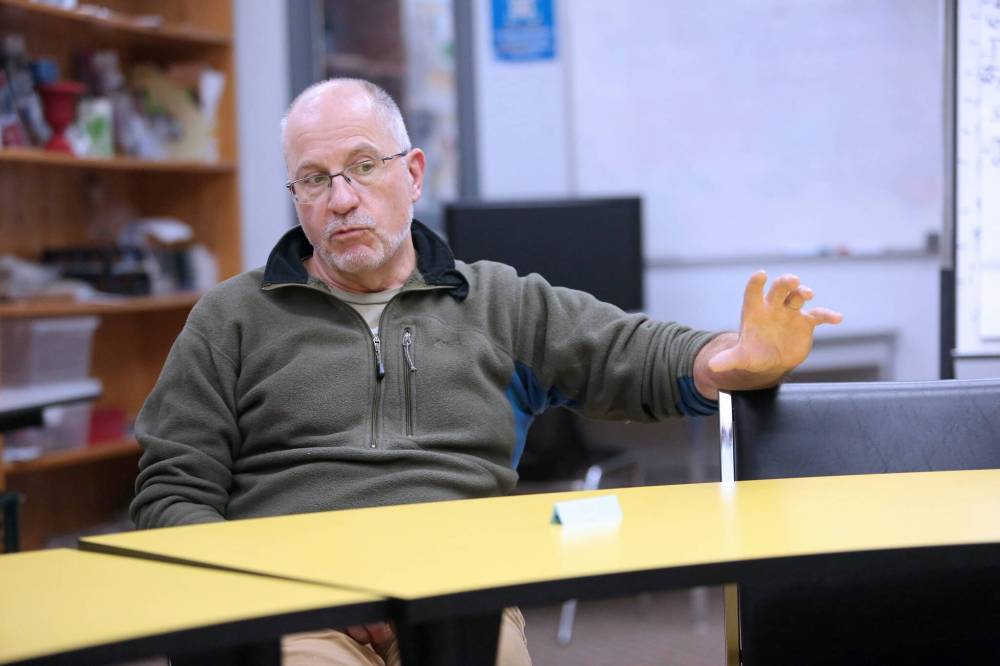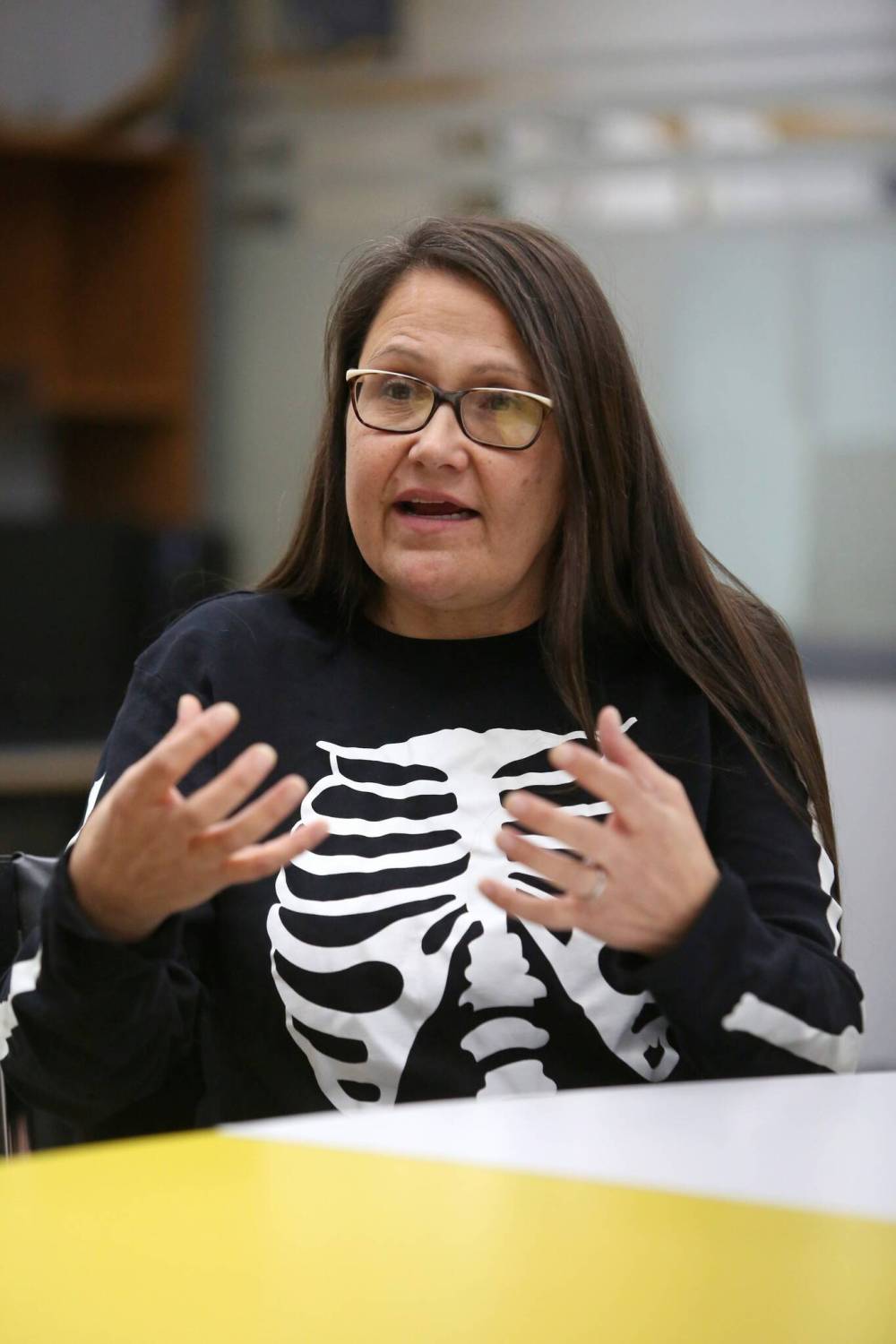Need seen for mental health court in city
Advertisement
Read this article for free:
or
Already have an account? Log in here »
We need your support!
Local journalism needs your support!
As we navigate through unprecedented times, our journalists are working harder than ever to bring you the latest local updates to keep you safe and informed.
Now, more than ever, we need your support.
Starting at $15.99 plus taxes every four weeks you can access your Brandon Sun online and full access to all content as it appears on our website.
Subscribe Nowor call circulation directly at (204) 727-0527.
Your pledge helps to ensure we provide the news that matters most to your community!
To continue reading, please subscribe:
Add Brandon Sun access to your Free Press subscription for only an additional
$1 for the first 4 weeks*
*Your next subscription payment will increase by $1.00 and you will be charged $20.00 plus GST for four weeks. After four weeks, your payment will increase to $24.00 plus GST every four weeks.
Read unlimited articles for free today:
or
Already have an account? Log in here »
A longtime defence attorney in Brandon says a mental health court in the city would give people experiencing mental illness “the help they need.”
“In custody, they’re not going to get the help, not the extensive help, the program provides,” Bob Harrison said.
The only mental health court in Manitoba is in Winnipeg.

Harrison has spent almost 40 years practising law in Brandon and brings up the need for a mental health court whenever he has a chance during a hearing.
“I’m always yapping about it,” Harrison told the Sun. “We’ve got a lot of mental health problems in this area, so that’s why I keep going on about it.”
He said people with mental illnesses often don’t function well in jail because they are “prone to getting picked on.” A mental health court program — if completed — would result in the accused receiving a community-based sentence or having their charges stayed, he said.
Harrison called this a “win-win” situation.
Winnipeg’s mental health court started in 2012 as a joint initiative between Shared Health, Winnipeg Regional Health Authority and Manitoba Justice. Its purpose is to divert adults whose criminal involvement is a direct result of their mental illness from the regular criminal justice system.
Marnie Evans, the community Crown for Winnipeg’s mental health court, explained that the court has two tracks — mental health court proper and the pre-plea diversion program.
When an accused is accepted into the mental health court proper program, they are expected to plead guilty to the offences for which the Crown is seeking pleas.
Evans said it’s more intensive than the pre-plea option and lasts 18-24 months.
Once the accused enters pleas, they join the rest of the participants and are expected to attend court every week and meet with the mental health court treatment team.
Evans said each participant is assigned a specific service co-ordinator who meets with them regularly, assesses if and what treatment programming they need and connects them with resources in the community.
If completed, the accused’s charges will either be stayed or they will receive a community-based sentence, depending on the seriousness of the offences.
The pre-plea program didn’t launch until 2019 and doesn’t require the accused to enter guilty pleas, Evans said. She said the accused is required to come to court on their start date, where the rules of the program will be explained to them.
From there, they will meet with a mental health court treatment team designate, and the accused will participate in programming that focuses on their specific needs for up to six months.
“It’s all about stabilizing their mental health,” Evans said.
She said if the accused completes their programming, the expectation is that their charges will be stayed.

Ross Robinson, executive director with the John Howard Society of Brandon, said he sees value in the city having a mental health court. (Matt Goerzen/The Brandon Sun)
People who want to go through either of the mental health court programs need to apply and meet the “criteria of admissibility.” This means that a person’s mental health and offending are linked, Evans said
Not all offences are admissible, however.
Homicide, impaired driving, negligence causing death, child abuse, child pornography and criminal organization offences, along with any offences causing serious bodily harm, are some of the charges that cannot be dealt with through mental health court.
Evans said an accused person usually completes the application with their lawyer to make sure they fully understand what they are signing up for and the rights they are waiving.
If an accused person enters guilty pleas in mental health court and they do not complete the program, which Evans said does happen because the program is intensive and doesn’t work for everyone, they are not allowed to withdraw their guilty pleas and will have to deal with them in regular court.
The John Howard Society of Brandon works with people involved in the criminal justice system, which includes providing diversion services through Manitoba Justice and working with inmates at Brandon Correctional Centre to help them reintegrate into their regular lives after incarceration.
Executive director Ross Robinson said he sees value in the city having a mental health court.
While he admitted that he doesn’t know how many cases in Brandon would be admissible in a mental health court, he said if “there’s an individual case that can be diverted from the criminal justice system, it’s probably of tremendous value to that individual and their family.”
Some people experiencing mental illness may benefit from spending time in custody, as it gives them a sense of stability, Robinson said. However, locking people up is never the healthiest option, he said.
“Taking people away of their family, taking people away from their loved ones is not a healthy option.”
The fact that many correctional institutions are overcrowded doesn’t help the situation, he added.
He said people shouldn’t be penalized for decisions that are impacted by their mental health, acknowledging that this idea isn’t applicable to all ranges of charges.
Janis Irvine, who is a co-ordinator for Community Mobilization Westman, asked aloud, “Is our community ready to embrace a mental health court?”
She said many people think if people are locked up in jail for their offending, they will change their behaviour.
“Will the community see (mental health court) as a positive thing and embrace it? Is it going to give them a perception of safety, or will they feel like this is one more way where criminals don’t have to be held accountable?”

Janis Irvine, a co-ordinator for Community Mobilization Westman, said custody doesn’t have the wraparound support that people experiencing mental illness need. (Matt Goerzen/The Brandon Sun)
The general public may have the idea that everyone before the court has “criminal thinking,” but that’s not the case, Irvine said.
“We look at how mental health gets people involved in the system, and if they had the proper supports, would they engage with the criminal justice system? And my experience would say, if they had the support, a lot of folks wouldn’t.”
Custody doesn’t have the wraparound support that people experiencing mental illness need, Irvine said. “It’s not what it’s meant for.”
Evans said that while mental health court is “well-known within the legal community,” she hopes to continue spreading awareness around it.
“I’m just really excited to talk about mental health court, and I’m trying to get the message out there that it exists,” she said. “It’s a great resource for a lot of people.”
Since its inception, 151 people have graduated from the two tracks of Winnipeg’s mental health court program, a Shared Health spokesperson said in an emailed statement to the Sun.
The graduation rates vary each year. In 2024, 11 people graduated from the two-year program and in 2025, 22 people graduated, the spokesperson said, adding that there are usually an even number of men and women in the programs.
“The court does not track recidivism or demographic data beyond gender, as participants’ legal involvement ends upon graduation. However, program outcomes demonstrate significant benefits for both participants and the community,” the statement said.
When asked if there are any plans to implement a mental health court in Brandon, why Brandon doesn’t have a mental health court and what it would take to get one, Manitoba Justice Minister Matt Wiebe sent a statement to the Sun that did not directly respond to the questions.
“We’re proud of the work that the mental health court in Winnipeg and the drug treatment court in Brandon do, diverting people who need mental health supports and treatment away from traditional courts and getting them the help they need so that they don’t reoffend,” Wiebe said.
» sanderson@brandonsun.com
